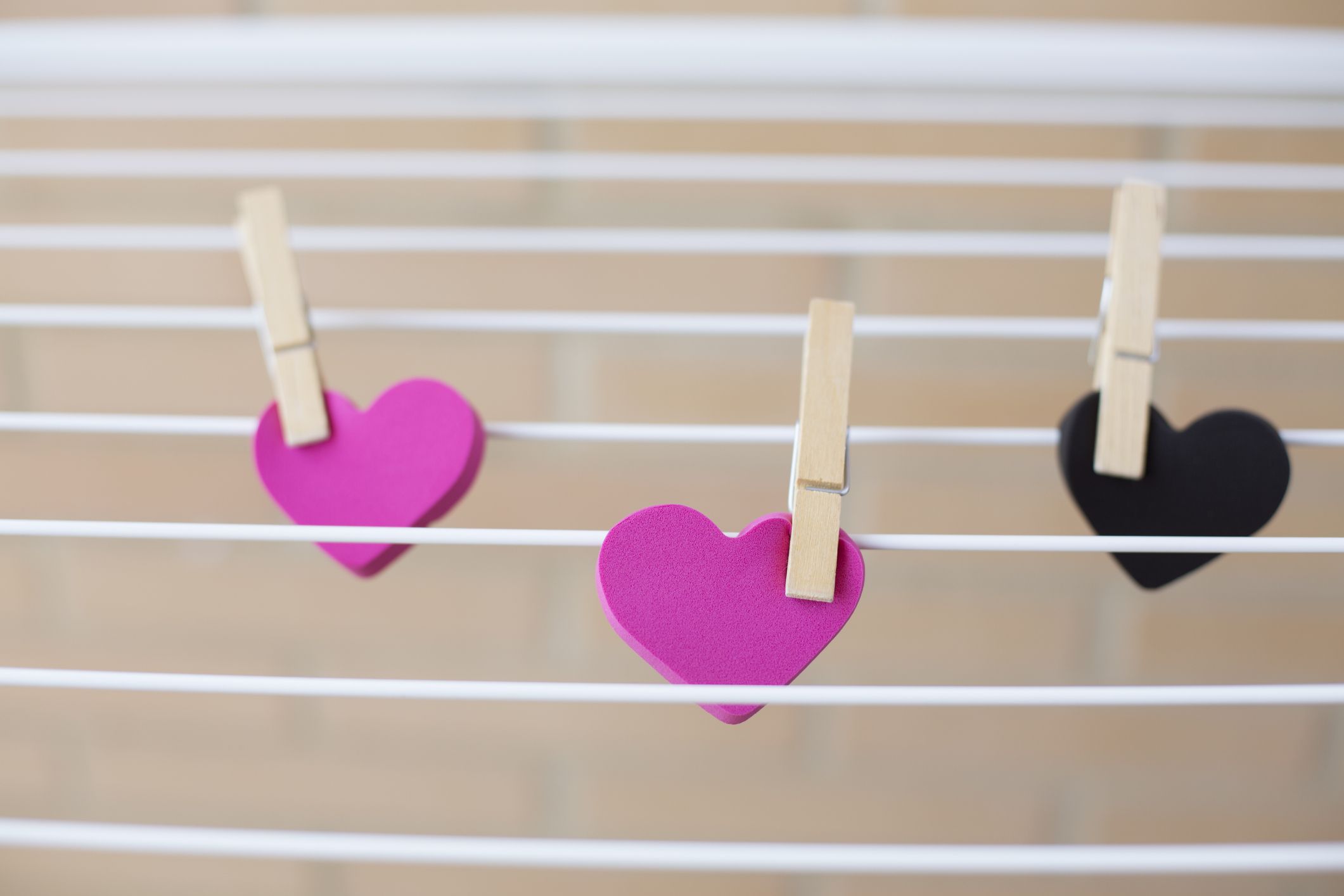You probably already know this, but the honeymoon phase doesn’t last forever. Even the healthiest of relationships have their tough moments. The key to not letting those moments break down your bond is by addressing stress in your relationship early on.
Kathryn Smerling, PhD, a family and relationship therapist in New York City, says stress is normal—but if it goes unchecked, it can sometimes lead to other issues. When stress is building up in a relationship, it makes it harder to “fully commit to your current relationship and partner,” she says.
And if you don’t actively and regularly address your stressors, there’s a possibility they’ll affect how you act towards your partner and vise versa. Yes, even if you try and push it aside and pretend it isn’t affecting you.
“Stress always comes out in the end when you don’t deal with what’s causing it directly,” says Smerling. “There’s always leakage and it can come out in emotions, such as anger, inattentiveness, spaciness or even drinking and eating too much or not eating at all.” Then, those responses bring on even more negative effects on the relationship, and it can prevent you from being your full, authentic self with your partner, says Smerling. If the behavior becomes too toxic, it can even cause the relationship to fail altogether.
Stress can take on a number of forms—things you might not even recognize as stress at first. So you can identify it every time, ahead you’ll find some common causes of relationship stress, and some actionable solutions you can try to address it.
Causes
From anxiety caused by finances or the feeling that you and your partner are headed in two different directions, here are a few causes of relationship stress:
Lack Of Effort From Your Partner
This is a major one, says Smerling. “If a relationship is not tended to, it’s going to fail. The one thing that couples always say when they come go into therapy is that they don’t feel appreciated or heard.” Showing your partner appreciation, even for the small things—like taking the trash out—is what keeps a relationship intact. “Being inattentive or not being present is a big way for a relationship to go downhill,” says Smerling.
Constant Arguing
If it seems like you and your partner disagree on everything nowadays, there’s a good chance something’s not right.Maybe one of you is picking fights because you’re hurt by something your partner did or said that’s totally unrelated to the argument. Or maybe you find yourselves heated about the same topic over and over again—a sign that your communication patterns are off.
Regardless of what the arguments are about, they aren’t productive, says Smerling. Rather than confronting what’s actually eating away at you, couples will often use the blowout fight to escape and avoid dealing with their issues constructively. If you can’t find your way out of this vicious cycle of arguments, Smerling says it may be time to seek professional help from a couples’ therapist to pinpoint the root of the argument and learn a few communication tools.
Finances
Money is likely a stressor for pretty much everyone. But that stress can see itself magnified in romantic relationships when two people have to make big monetary decisions together. “The hardest thing to do is live within your means, and when we don’t, it can lead to stress about the basic things like groceries and bills, often leading to even more arguments about spending,” says Smerling.
But there is an easy way to get a hold on this. Smerling recommends sitting down with your S.O. and talking about what your respective financial goals are. Then, figure out how to make whatever resources you have as a team work. If you both don’t apply mindfulness to your spending, then finances may continue to be a source of stress for your relationship.
If you’re not sure when bring up finances with your partner, check out this video:
Uncertainty About Future Plans
If you and your partner aren’t on the same page, it can often make you feel insecure and like your relationship is destined to fail. Smerling says that one of the most wonderful things relationships are the things you can plan on experiencing together. “When that’s not an option people feel skittish and uncertain about themselves, which leads to stress about their commitment to the relationship and each other.”
Effects
A constant cloud of stress in a relationship can have several effects that can hurt your relationship. Here’s what that might look like:
Pulling Away/Retreating
“Brushing stress under the rug and not facing it head on can lead to partners retreating from each other and the relationship,” says Smerling. This can feel like your partner is being distant, or like their reactions to things like arguments are becoming more nonchalant.
Excessive Drinking/Drug Use
Smerling says this is a common coping mechanism for stress. It often leads to problems in the relationship and breaks trust between partners if one person feels uncomfortable with their partner’s habits if say, because of alcohol, their partner has a hard time remembering conversations after night of drinking or they need to mellow out with drugs in order to spend time with their partner.
Having An Affair
When you feel like you’re relationship is causing you stress, it might be tempting to look for some kind of positivity elsewhere.”When you feel out of control, an easy and unhealthy way to cope is to look for comfort in other [romantic partnerships outside the one you’re in.] And if you’re feeling neglected by your partner, it’s also not uncommon to try to find that affection or intimacy within someone else,” says Smerling. But this isn’t a productive solution for relationship stress, since it can bring about even more hurt in your relationship.
Solutions
Here are a few things you can do to address stress and keep it from making your relationship a toxic one.
Talk It Out
And when you do, make sure you aren’t trying to point fingers. “Start your phrases with an ‘I feel’ instead of a ‘you make me feel,'” says Smerling. By doing so, you’ll both be taking responsibility for your own feelings while allowing your partner to better understand how and why the stressors in the relationship are making you feel this way.
After you’re done listening to each other, try to not react in a combative way. “Just listen and reflect back to your partner with an, ‘I understand,'” says Smerling. And if you don’t get where they’re coming from, say so and ask them to elaborate. “Be curious, but not defensive and don’t turn it into a ping-pong match,” Smerling adds. Your discussion may get passionate, but it’s best to avoid letting your emotions control the conversation.
Do Something Active Together
Smerling suggests doing something physical together, like yoga or going for a walk. Being outside, in particular, is a good move, she says, because fresh air and nature will help clear your minds and offers a neutral environment to talk through how you’re feeling with your partner, says Smerling.
Plus, it doesn’t hurt that sweating it out together is also a natural stress reducer. Regular exercise protects against the negative emotional consequences of stress by upping endorphins and other feel-good chemicals in the brain. Plus, these benefits will last hours after you get sweaty together, as Women’s Health previously reported.
Seek Professional Help
If stress is eating away at what was once a happier and healthier relationship, it might be helpful to bring someone in to help you get it back on track. “Professional help is always an option to help couples talk through their issues and should definitely be explored if both partners are constantly fighting and unable to come to a solution or compromise on their own,” says Smerling. A relationship therapist can show you both how to engage in conversation that leaves each person feeling heard and respected.
Leave The Relationship
If you feel like there’s no getting your relationship back to what it once was, whether that’s because you exhausted every solution or you’re confident you’d be happier on your own, then leaving is always an option. Particularly if it’s harming your mental health, says Smerling. Leaving your relationship is a serious decision you might not be able to reverse should you decide you want to later on. But in the long run, if you and your partner simply aren’t compatible or are doing each other more harm than good, it can often be the healthiest choice of all.
Source: Read Full Article





